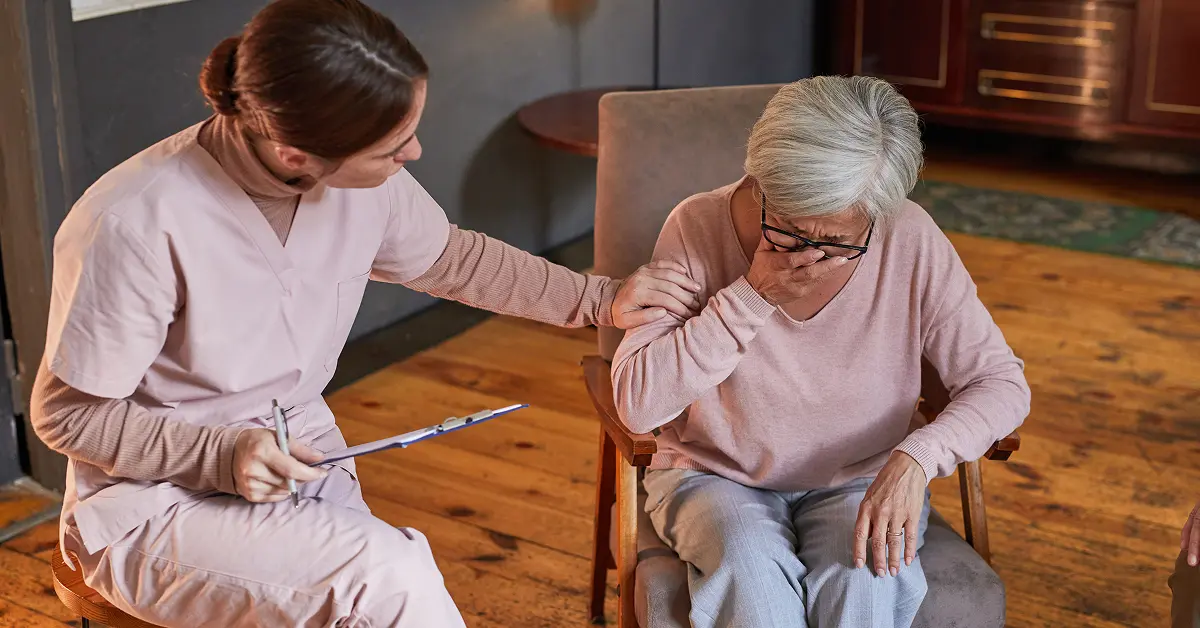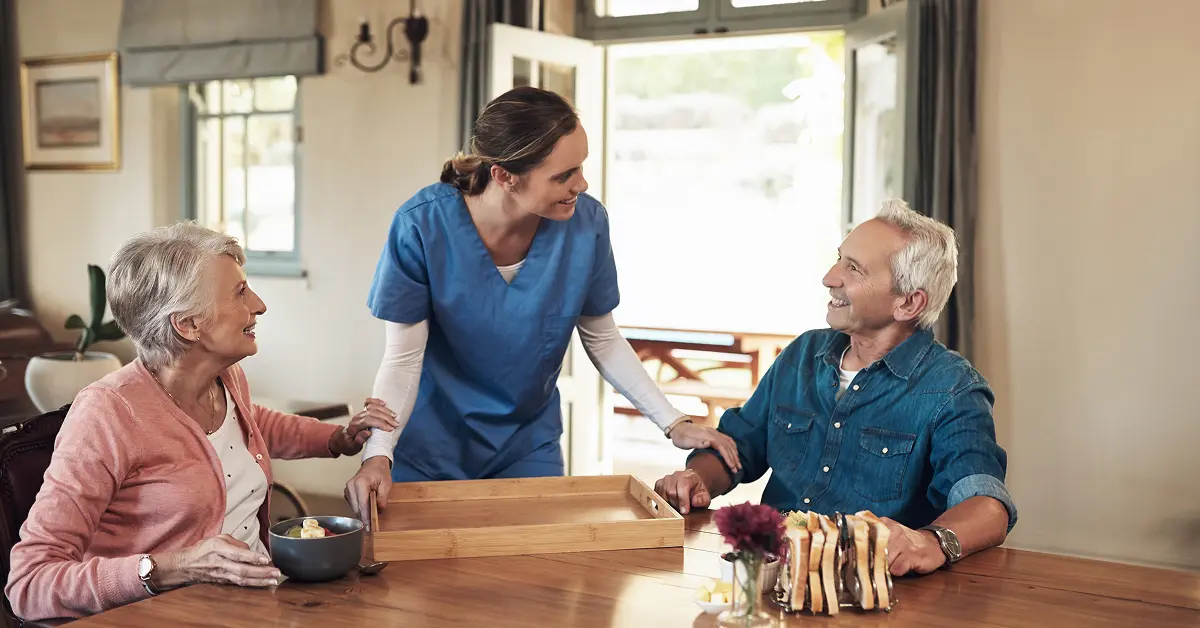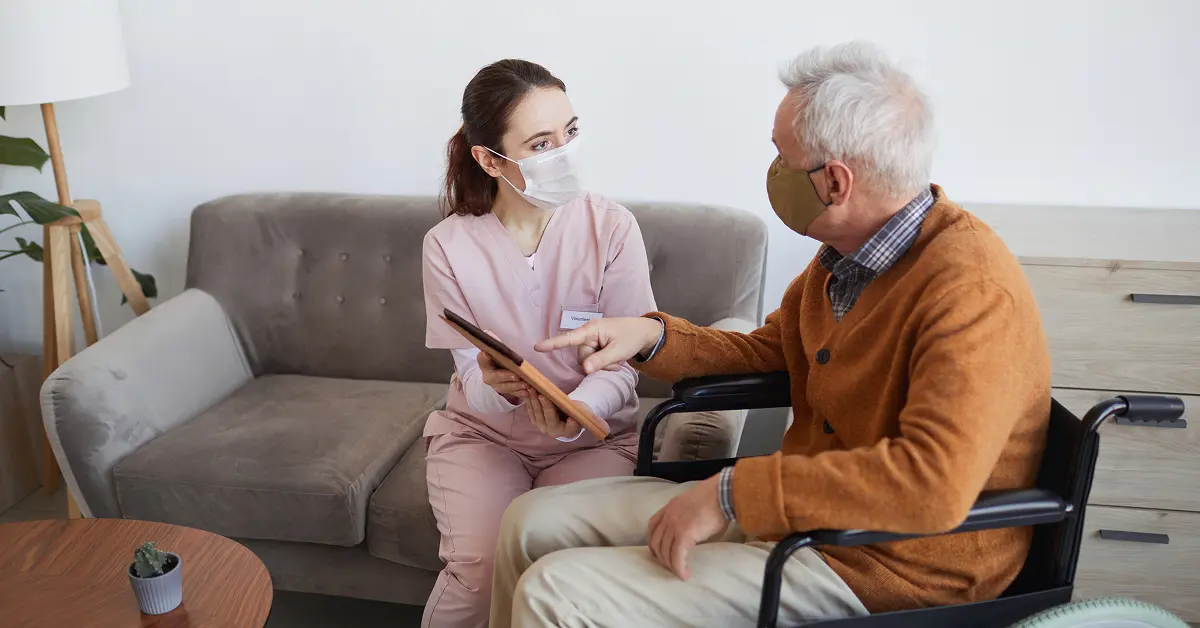Loneliness among the elderly is a growing concern, especially in urban India, where nuclear families, busy lifestyles, and migration have left many seniors living alone. Emotional isolation can lead to depression, cognitive decline, and even physical health issues. In this context, in-home Senior Care Services offer not just practical assistance but also much-needed companionship and emotional support.
This article explores how in-home caregivers can help reduce loneliness in senior citizens, improve their quality of life, and provide peace of mind to families.
Understanding Loneliness in Elderly Indians
India has a rapidly ageing population, with millions of senior citizens living independently or with minimal support. Loneliness in older adults can arise due to:
- Loss of a spouse or close friends
- Children moving away for work or education
- Limited mobility or health issues
- Social isolation post-retirement
Loneliness is not just an emotional issue; it has been linked to a higher risk of stroke, heart disease, and dementia. That’s where professional in-home senior care becomes vital.
What Do In-Home Senior Caregivers Do?
In-home caregivers offer personalised care to seniors within the comfort of their own homes. Their responsibilities typically include:
- Assisting with daily living activities (bathing, dressing, grooming)
- Monitoring medications and health conditions
- Preparing nutritious meals
- Providing emotional companionship
- Accompanying seniors on walks or to appointments
- Engaging seniors in games, storytelling, and conversation
While physical care is essential, the emotional bond formed between caregivers and seniors often has the most significant long-term impact.
Providing Daily Companionship
Many elderly individuals in India spend long hours alone at home. Caregivers fill this void by offering someone to talk to and share daily experiences with.
A cheerful caregiver can brighten up a senior's day just by being present. Whether it’s sharing a cup of tea, watching TV together, or engaging in small talk, these everyday interactions help ward off feelings of isolation and abandonment.
Encouraging Social Engagement
Some seniors gradually withdraw from social life due to physical limitations or fear of being a burden. In-home caregivers encourage and even assist elderly people in attending:
- Community events or satsangs
- Local senior clubs or gatherings
- Temple visits or spiritual activities
- Family functions or video calls with distant relatives
Caregivers also help with dressing up and ensuring safe transportation, making social outings more accessible and enjoyable.
Supporting Mental Health
Loneliness can lead to anxiety, insomnia, and depression. Caregivers are often the first to notice mood swings, changes in behavior, or signs of sadness. They can:
- Offer a listening ear without judgment
- Alert family members or doctors to mental health concerns
- Encourage hobbies like gardening, painting, reading, or singing
- Maintain routines that give a sense of stability and purpose
In India, where mental health issues among seniors are often underdiagnosed, a caregiver’s presence can be life-changing.
Creating a Sense of Security
Many elderly people fear falling ill, slipping, or facing an emergency alone. This fear adds to their emotional distress. Having a trusted caregiver nearby brings reassurance and safety.
Knowing someone is there to help with daily activities, fetch medications, or call for emergency services can significantly lower stress levels and make seniors feel protected and cared for.
Helping Maintain Dignity and Independence
One of the major causes of loneliness is the feeling of being a burden. Caregivers strike a balance between offering help and encouraging independence. They assist only where necessary and allow seniors to do what they can on their own.
This preserves self-respect and allows older adults to remain in their own homes, surrounded by familiar memories, which plays a big role in emotional well-being.
Fostering Intergenerational Connections
Some caregiving services also include younger professionals or students trained in elder care. This dynamic brings fresh energy and intergenerational interaction, which elderly individuals often enjoy.
These conversations often bridge gaps and give seniors a sense of relevance in a rapidly changing world. It also counters the common feeling of being "left behind" that many aged Indians experience.
Addressing the Cultural Aspects of Loneliness in India
In Indian culture, family is considered the primary caregiver. But due to changing socio-economic structures, that’s no longer always possible. Many adult children live abroad or in other cities for work.
In-home caregivers act as extensions of family, respecting cultural norms, religious beliefs, and food habits. Whether it’s helping with pooja preparations, attending bhajans, or cooking sattvic meals, caregivers in India can be culturally aligned with seniors’ needs.
Choosing the Right Caregiver for Emotional Well-Being
When hiring a caregiver in India, especially for emotional support and companionship, look for:
- Empathy and patience
- Communication skills
- Background checks and references
- Training in elder mental health
- Shared language or regional familiarity
Several home healthcare providers in India now offer trained companionship caregivers, specially focused on reducing loneliness among seniors.
The Role of Families Alongside Caregivers
While caregivers provide daily emotional support, family involvement is still crucial. Regular phone calls, visits, involving elders in decision-making, and celebrating birthdays or festivals with them help strengthen bonds.
Caregivers and families should work together as a team to ensure the elder feels included, valued, and cherished.
Conclusion
In a society where loneliness among the elderly is a silent epidemic, in-home caregivers serve as more than just helpers — they are companions, emotional anchors, and guardians of dignity. Their presence helps seniors combat isolation, stay mentally engaged, and lead more fulfilling lives.
As India continues to evolve, embracing in-home caregiving solutions is not only practical but deeply compassionate. It's a way to ensure our elders are not just living longer but living better — with warmth, company, and dignity.
Need support for an elderly loved one?
Explore trusted in-home caregiving services in India that prioritise both health and happiness for your senior family members.
Contents
- Understanding Loneliness in Elderly Indians
- What Do In-Home Senior Caregivers Do?
- Providing Daily Companionship
- Encouraging Social Engagement
- Supporting Mental Health
- Creating a Sense of Security
- Helping Maintain Dignity and Independence
- Fostering Intergenerational Connections
- Addressing the Cultural Aspects of Loneliness in India
- Choosing the Right Caregiver for Emotional Well-Being
- The Role of Families Alongside Caregivers
- Conclusion
Our 24*7 services
Latest Posts
- What Is Respite Care and Why Is It Important
- Affordable home care for senior citizens in India
- Caring for Seniors with Dementia or Alzheimer's at Home
- Senior Caregiving A Guide for Every Family
- How to Write a Caregiver Resume That Gets You Hired
- How Care After Hospital Discharge Speeds Up Recovery at Home
- How to Get Home Health Care for Seniors Through Medicare
- What Does a Senior Citizen Caregiver Really Do at Home
- How to Care for Elderly Parents with Alzheimer’s or Dementia
- How to Get 24-Hour Care for Seniors at Home



